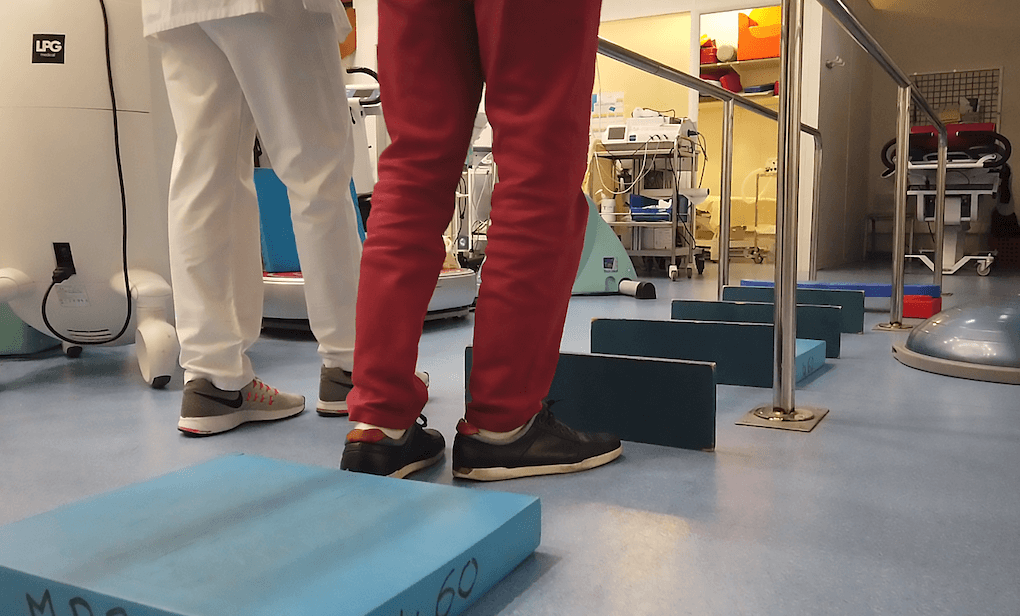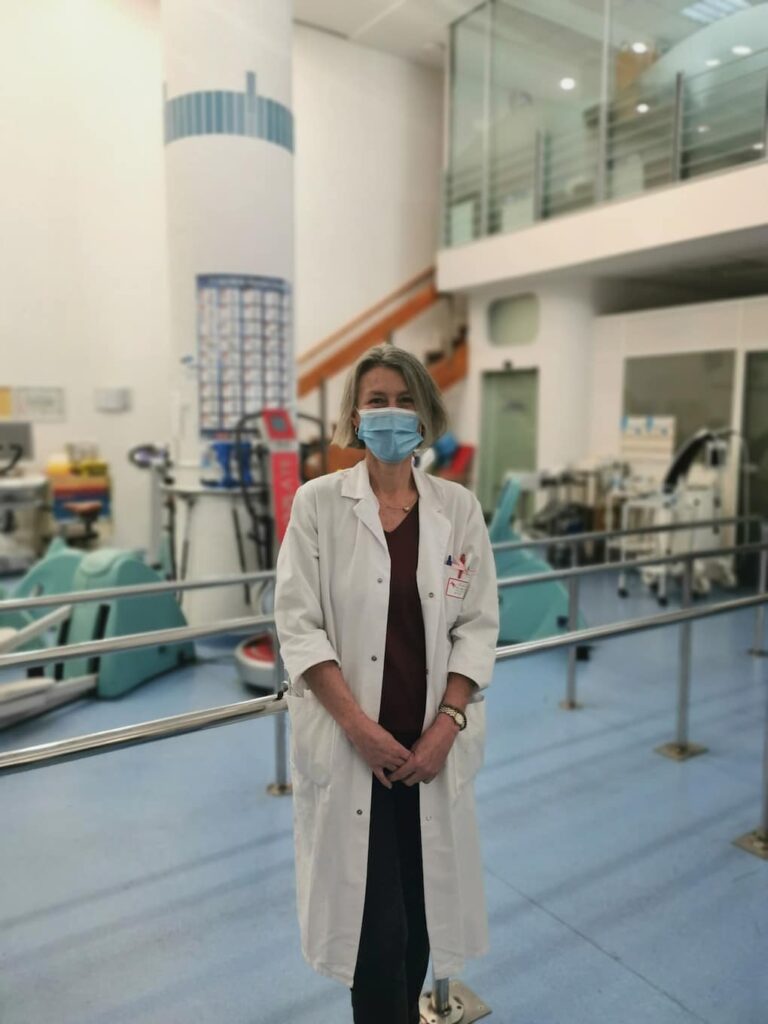How is the Princess Grace Hospital supporting Long Covid rehabilitation?

Long Covid can cause various symptoms that should not be taken lightly.

The problem is now said to affect 30 to 50% of the population who have contracted Covid. While doctors are preparing for the arrival of an eighth wave of infections, as reported in the medical press, the Princess Grace Hospital is also treating patients who are still showing symptoms of Covid after recovery. In other words, people with long Covid.
“It’s a question of duration: the WHO suggests that Covid patients should have fully recovered from their symptoms between two and four weeks after the infection,” explains Dr Valérie Bernard, head of the physical medicine and rehabilitation department at the Princess Grace Hospital. “But there are a significant number of patients who, six weeks after an episode of Covid, still have symptoms that will persist over time.”
Don’t trivialise the symptoms
Sometimes the symptoms last much longer, up to one or two years after the infection. The nature of these symptoms is highly variable: “We have identified about fifty symptoms, which are otherwise unexplained, not linked to a comorbidity or a new disease. (…) There is a great deal of variability, both in the patients concerned by long Covid, but also in the symptoms. These range from cardio-respiratory symptoms such as breathlessness, tachycardia or prolonged fatigue, to neuromuscular symptoms with muscle wasting, muscle weakness on exertion or even cognitive disorders,” Dr Bernard explains.
SEE ALSO : Covid-19 : 1 in 4 people infected in Monaco since pandemic began
The main problem is that when faced with certain “mild” symptoms, such as fatigue, many patients have no idea that they actually have long Covid. “I think a lot of people think it will go away on its own and wait to see a doctor. The medical community is really trying to get this message across: if you have persistent symptoms, you need to see your GP. These symptoms should not be trivialised. As is often the case in rehabilitation, the quicker we intervene, the better,” says Dr Bernard.
Exercises to do in hospital, at the physiotherapist clinic or at home
Rehab is important, both to reduce or even put an end to these symptoms and to prevent a possible deterioration: “We teach the body to re-train itself: relearning how to breathe at rest, use our maximum respiratory capacity during effort, and repeat certain movements in a fluid and comfortable way. The aim is to enable a fully-functional recovery and a good quality of life.”
For this purpose, the Princess Grace Hospital has a fully-equipped room where doctors, physiotherapists, occupational therapists, speech therapists and psychomotor therapists help patients to recover their motor functions. Some people can also carry out exercises at their physiotherapist’s clinic or at home, as advised by their practitioner: “Here, we have optimal conditions because we have a perfectly equipped technical facility. But it’s a case-by-case basis: some hospital patients want to continue their rehabilitation here and their condition justifies it. Our role as a doctor is to consult the patient and propose the best possible approach, according to their functional situation,” attests the Doctor.
Excluding hospitalisations, around sixty outpatients have sought and still seek out the Princess Grace Hospital’s Physical Medicine and Rehabilitation department. “The use of rehabilitation remains much lower than it should be, due to a lack of information or difficulty in accessing certain treatments”, laments the doctor, who believes that the number of post-Covid consultations could well increase in the future. If the virus has undergone numerous mutations since its appearance, the same probably goes for the symptoms during and after contamination.
This is why Dr Bernard strongly encourages you to make an appointment with your doctor if you have even the slightest doubt: “If after Covid, after a month, a symptom of any kind persists – even if it is as trivial as tiredness or a little breathlessness on exertion – you should consult a doctor, if only to be reassured! The symptoms can also fluctuate greatly from one day to the next, from one week to the next… It is very difficult to understand for the patient – of course – but also, sometimes, for those around them. Rehabilitation enables us to put a name to it, to make a diagnosis and to propose treatment and support. This creates a really positive dynamic.”
If you have any concerns or questions about a Covid-19 infection, call 92 05 55 00 (7 days a week from 9 a.m. to 5 p.m.) or send an email to covid19@gouv.mc.









